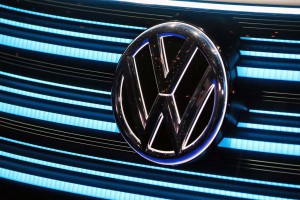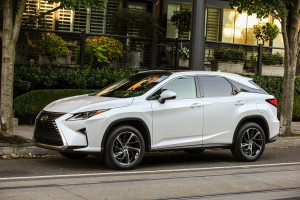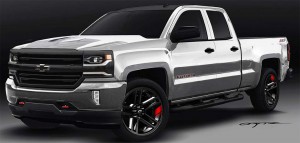It’s had to suspend sales of its popular diesels in the U.S. market, and it’s already taken an $18 billion hit in the wake of its ongoing diesel emissions scandal, but not all is doom-and-gloom for Volkswagen AG.
The embattled automaker can celebrate the fact that it surged into the global sales lead for the first quarter of 2016, narrowly squeaking by Japanese giant Toyota which has had its own problems in recent months. General Motors continued to hold down the third spot in the global sales sweepstakes.
Whether VW can hold the lead for the rest of the year is far from certain. It was, in fact, the top-seller for the first half of 2016, only to slip behind Toyota once again as the diesel disaster began to take its toll. But wildcard factors have a way of upsetting the industry’s apple cart, and Toyota is currently dealing with problems that will likely scuttle its chances of regaining the sales crown for at least another quarter.
Volkswagen says it was able to deliver 2.49 million vehicles during the first three months of 2016, a 0.8% year-over-year increase. Despite its diesel woes, sales surged 6.4% in the Chinese market, and it gained ground in the rest of Asia, as well as Europe.
But the German maker suffered a 5.7% dip in the U.S., and a 2.1% decline in all of North America. That’s actually not as bad as it could have been. Before the maker acknowledged rigging its diesels to illegally pass American emissions tests last September, those oil burners accounted for about a quarter of its U.S. sales. Hefty incentives have shifted many potential buyers to the brand’s gas models. Separately, economic woes in key markets like Brazil led to a 27.6% plunge in South America.
Toyota toppled off the sales throne after suffering a 2.3% decline for the quarter. Much of the blame goes to the unexpected shutdown of a critical steel supplier that led to parts shortages that forced Toyota to temporarily idle its Japanese assembly lines for a week. Overseas operations couldn’t help it make up the lost momentum.
While that steel plant is back in operation, things are getting off to a bad start this quarter. Toyota had to idle a number of Japanese plants last week due to the devastating earthquake that hit the country’s southernmost island. It is slowly restarting some of those plants but it remains unclear when the maker will get back up to full speed. It is warning that there could soon be a shortage of some Lexus models at dealerships in the U.S.
(Click Here to check out the new Lexus IS debuting at the Beijing Auto Show.)
“This has impacted multiple parts, models and plants,” said Hiroji Onishi, a Toyota senior managing officer. “All effort is being made now to grasp the current situation and build the recovery plan.”
On the positive side, the disaster is not expected to have the sort of long-term impact felt by the ruinous earthquake and subsequent tsunami that struck northern Japan in 2011. That disaster forced much of the Japanese auto industry to shut down for months, even impacting overseas operations due to shortages of Japanese-made parts.
That situation allowed General Motors to briefly regain the global sales crown it had held for three-quarters of a century. But GM seems unlikely to regain its position as king-of-the-hill anytime soon. Ironically, the maker is idling four of its own plants this week because of parts shortages caused by the Japanese temblor.
(GM also hit by Japanese strike. Click Here to learn what that means.)
For the first quarter, GM volume slipped 2.5%, to 2.36 million – even while it reported record profits. GM has been suffering from the economic slowdown in China, its largest global market, though deliveries in the home U.S. market were up 7% for the January-to-March period.
Even if Volkswagen is able to maintain its lead for the full year, the maker might not feel much like celebrating. The carmaker took an $18.2 billion hit for 2015 to cover initial costs related to its diesel emissions scandal. It is expected to spend billions more as it deals with regulators around the world and crafts settlements with diesel owners, dealers and shareholders.
(Click Here for the latest on the VW diesel scandal.)



